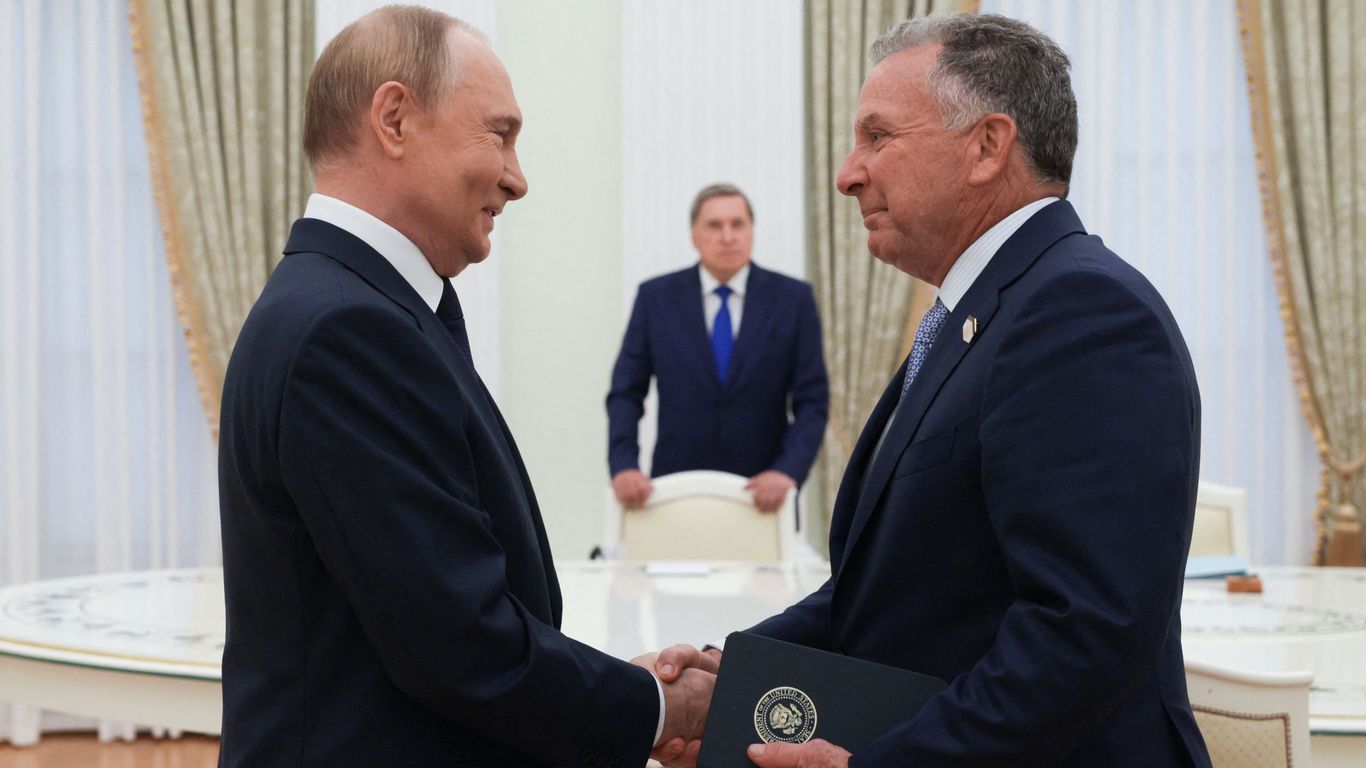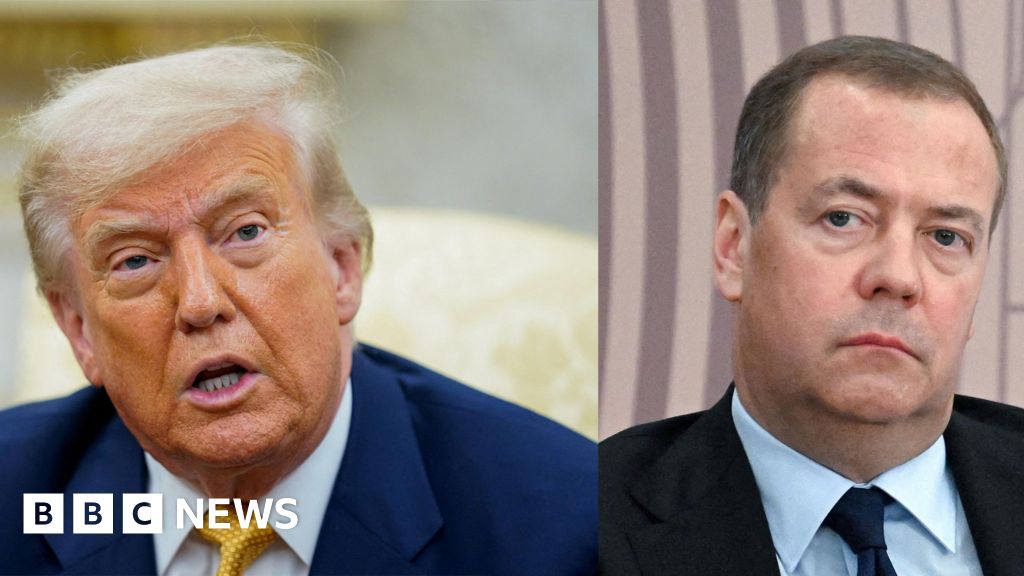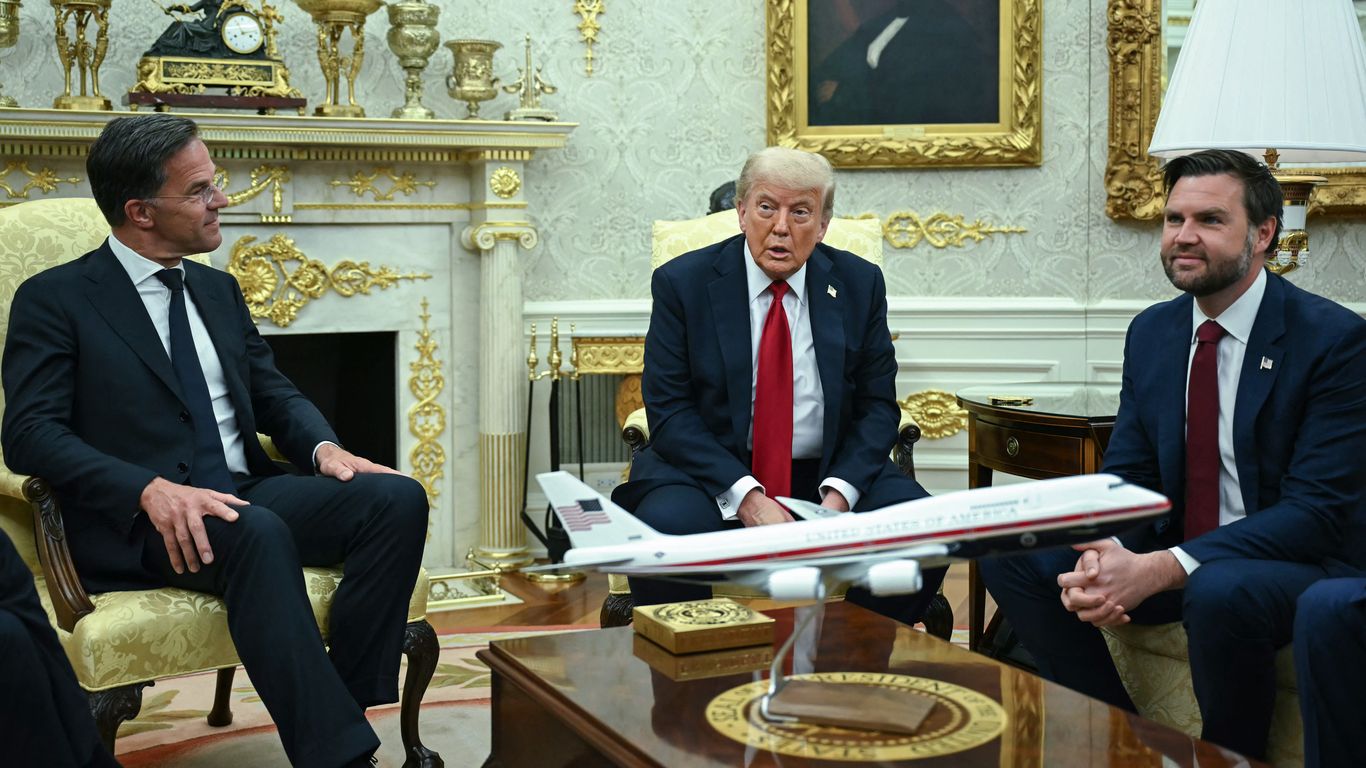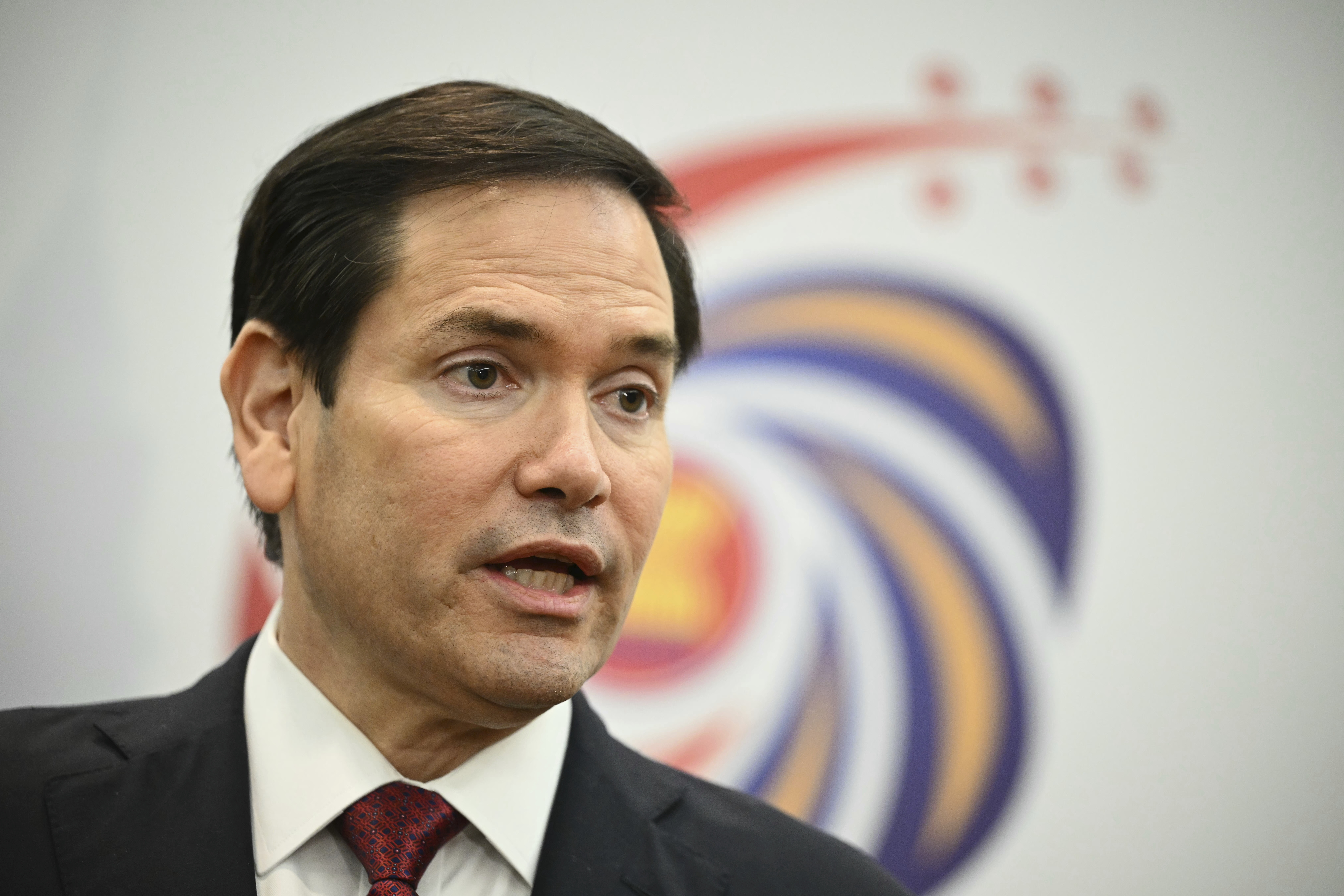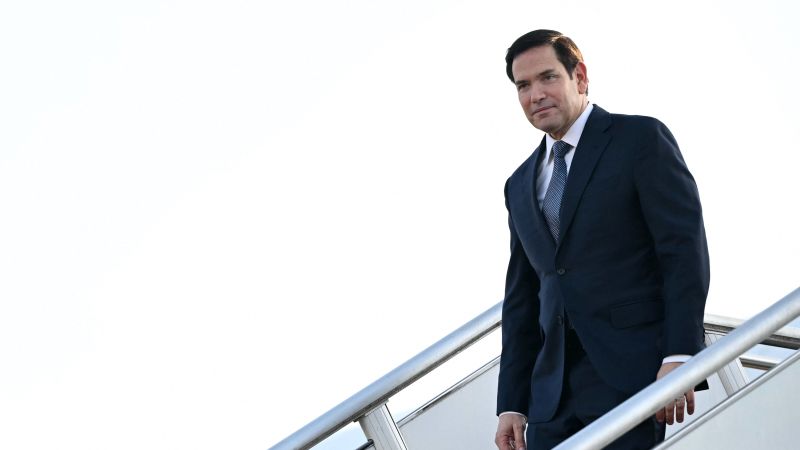Emergency Summit Called for European-Russian Negotiations

Introduction
In a move to address the growing tensions in Europe, German Chancellor Friedrich Merz has called for an emergency summit with top-level leaders before the upcoming critical negotiations with Russian President Vladimir Putin in Alaska. This summit, which will also include the participation of US President Donald Trump, is seen as a crucial step towards finding a resolution to the ongoing crisis in Ukraine.
Key Details
The decision to hold this extraordinary summit comes after months of strained relationships between European leaders and Russia. The ongoing conflict in Ukraine has only added to the tensions, with both sides engaging in a war of words and imposing economic sanctions on each other. The meeting will provide an opportunity for leaders to discuss and strategize their approach towards the negotiations with Putin.
Impact
The outcome of this emergency summit will have significant implications for the future of Europe and its relationship with Russia. With the involvement of high-level leaders such as Trump and Merz, the meeting is expected to bring about a more unified and coordinated approach towards the ongoing crisis. It also sends a strong message to Putin that the international community is united in their efforts to resolve the conflict in Ukraine.
About the People Mentioned
Vladimir Putin
Vladimir Putin is the current President of Russia, a position he has held for multiple terms since 2000, with a brief interlude as Prime Minister from 2008 to 2012[1][3]. Born in Leningrad (now Saint Petersburg) in 1952, Putin began his career in the Soviet Union’s security services, joining the KGB in 1975 and rising to the rank of Lieutenant Colonel by the time he left in 1991, following postings in East Germany and Leningrad[4]. After the Soviet Union’s collapse, he transitioned into politics, serving as an adviser to Saint Petersburg Mayor Anatoly Sobchak and later moving to Moscow, where he held various administrative roles under President Boris Yeltsin[6]. Putin was appointed Prime Minister in August 1999 and became acting President when Yeltsin unexpectedly resigned that December[3][6]. He won his first presidential election in March 2000, promising to stabilize Russia’s economy and political system after the tumultuous 1990s[3][7]. During his initial terms, he centralized power, reasserted federal control over Russia’s regions, and curtailed the influence of the country’s oligarchs through legal and economic measures[7]. Putin was re-elected in 2004 but, due to constitutional term limits, stepped aside in 2008, becoming Prime Minister under his successor Dmitry Medvedev, while retaining significant influence[3]. Constitutional amendments later extended presidential terms, and Putin returned to the presidency in 2012[1]. Putin’s time in office has been marked by assertive foreign policy, including military interventions in Syria in support of President Bashar al-Assad and the 2014 annexation of Crimea, which led to international sanctions[1]. Domestically, his tenure has seen increased state control over media, the suppression of political opposition, and constitutional changes consolidating executive authority[1]. In 2022, Russia’s full-scale invasion of Ukraine triggered a major international crisis, further isolating Russia from the West and prompting widespread condemnation[1]. As of 2025, Putin remains a dominant figure in Russian politics, having secured another term in office through constitutional changes that allow him to potentially remain president until 2036[1]. His leadership continues to shape Russia’s domestic trajectory and its role in global affairs, amid ongoing conflict in Ukraine and strained relations with NATO and Western countries[1].
Donald Trump
Donald John Trump, born June 14, 1946, in Queens, New York, is an American businessman, media personality, and politician. He graduated from the University of Pennsylvania’s Wharton School in 1968 with a degree in economics. In 1971, he took over his family’s real estate business, renaming it the Trump Organization, through which he expanded into building and managing skyscrapers, hotels, casinos, and golf courses. Trump gained widespread fame as the host of the reality TV show *The Apprentice* from 2004 to 2015, which helped establish his public persona as a successful entrepreneur. Trump entered politics as a Republican and was elected the 45th president of the United States, serving from 2017 to 2021. His presidency was marked by significant policy actions including tax cuts, deregulation, the appointment of three Supreme Court justices, renegotiation of trade agreements (notably replacing NAFTA with the USMCA), and a focus on immigration control including border wall expansion. He withdrew the U.S. from international agreements such as the Paris Climate Accord and the Iran nuclear deal, and engaged in a trade war with China. His administration’s response to the COVID-19 pandemic was criticized for downplaying the virus’s severity. Trump was impeached twice by the House of Representatives—first in 2019 for abuse of power and obstruction, and again in 2021 for incitement of insurrection—but was acquitted by the Senate both times. After losing the 2020 election to Joe Biden, Trump challenged the results, culminating in the January 6, 2021, Capitol riot. He remains a central figure in American politics, having won the 2024 presidential election and returned as the 47th president in 2025, continuing to promote policies aimed at economic growth, border security, and military strength[1][2][3][4].
About the Organizations Mentioned
European leaders
It seems there might be confusion in the query as there isn't a prominent organization specifically named "European Leaders." However, I'll provide a summary about the **European Leadership Network (ELN)**, which is a notable organization related to European leadership in security and foreign policy. ## European Leadership Network (ELN) The European Leadership Network (ELN) is a pan-European think-tank focused on European foreign, defense, and security issues. Founded in 2011, it aims to build better security for a wider Europe by addressing the gravest risks to European security through research, publications, and policy advocacy[1][2]. ### History and Objectives The ELN was initially part of the Nuclear Security Project, aiming to create a dialogue on nuclear disarmament. Over time, its scope expanded to address broader European security challenges, including the loss of cohesion among states, unintended war risks, and new military technologies[1][2]. ### Key Achievements - **Nuclear Security**: The ELN's work has been recognized with prestigious awards, such as the Nunn-Lugar Award for Promoting Nuclear Security, received by former UK Defence Secretary Des Browne and former Russian Foreign Minister Igor Ivanov[2]. - **Policy Impact**: The ELN influences European security policy through its networks of leaders and partnerships across Europe and beyond[1][2]. ### Current Status As of 2025, the ELN was declared an undesirable organization in Russia, reflecting its impactful role in European security discussions[2]. Despite this, the ELN continues to engage with European leaders on critical security issues. ### Notable Aspects - **Networking**: The ELN's strength lies in its network of over 450 current, past, and future European leaders across various sectors[1]. - **Global Partnerships**: The ELN collaborates with institutions in North America, Latin America, and the Asia-Pacific region, enhancing its global influence[1]. While the ELN is not directly involved
Russia
Russia, officially known as the Russian Federation, is not an organization but a sovereign state and the largest country in the world by land area, spanning Eastern Europe and northern Asia. With a population of nearly 144 million as of 2025, Russia ranks ninth globally by population and is characterized by significant ethnic diversity, with over 80% identifying as ethnic Russians and numerous minority groups contributing to its cultural tapestry[4]. The capital, Moscow, is a major global city and the country’s political, economic, and technological hub. ## Historical Overview Russia’s history is marked by its transformation from the Tsarist Empire to the Soviet Union and, after its dissolution in 1991, to the present-day Russian Federation. The post-Soviet era saw Russia’s integration into the global economy, though it retained a centralized political system with power concentrated in the presidency[7]. The country’s economy, historically resource-based, relies heavily on oil, gas, and minerals, but has also developed significant industrial, technological, and military sectors. ## Economic Profile and Key Achievements Russia’s economy is the world’s twelfth-largest consumer market, with about 70% of GDP driven by domestic consumption[1]. It has a “very high” Human Development Index ranking and boasts the fifth-highest number of billionaires globally, though income inequality and regional disparities remain pronounced[1]. Major achievements include surviving extensive Western sanctions after the 2022 invasion of Ukraine, maintaining economic stability through increased military spending, and pivoting energy exports to Asia[1][5]. The country has also played a leading role in the BRICS bloc, advocating for reforms in the international financial system and promoting technological innovation among developing economies[6]. ## Current Status and Challenges As of late 2025, Russia’s economy is experiencing a pronounced slowdown, with GDP growth cooling to around 1% after robust expansion in 2023–2024[2][3]. High military expenditure (
US President
The "US President" refers to the office of the President of the United States, the head of the executive branch of the federal government and Commander-in-Chief of the U.S. military. Established by Article II of the U.S. Constitution, the presidency holds significant authority including enforcing federal laws, appointing federal officials, conducting foreign policy, and directing the military[1][4]. The president also plays a critical role in domestic policymaking and legislation by signing or vetoing bills passed by Congress[1][4]. The office was created to unite leadership and ensure the execution of laws with executive power vested solely in the president. Since the first president, George Washington, 47 presidencies have occurred, with 45 individuals serving in the role. Presidents are elected indirectly through the Electoral College to serve four-year terms, limited to two terms by the Twenty-second Amendment ratified in 1951[1]. The current president is Donald Trump, inaugurated for his term beginning January 20, 2025[1]. Key responsibilities include acting as the nation's chief diplomat, commander of the armed forces, and head of state symbolizing national unity. The president influences legislation by proposing policy agendas, issuing executive orders, and shaping public opinion through direct communication with the public using modern media tools[3][5][6]. The office requires a blend of formal constitutional powers and informal leadership skills to unify the country and represent its interests domestically and internationally[3]. Notable achievements of presidents span military leadership during wars, landmark legislation, and influential rhetoric shaping American values and policy. Examples include leadership during World War II, the New Deal reforms, and civil rights advancements. The role continues to evolve with technology and changing global dynamics, maintaining the president as one of the most powerful and visible figures in government and international affairs[5][3]. In summary, the US presidency is a complex institution central to American governance, combining legal authority, political leadership, and symbolic representation, with profound impact on both domesti


